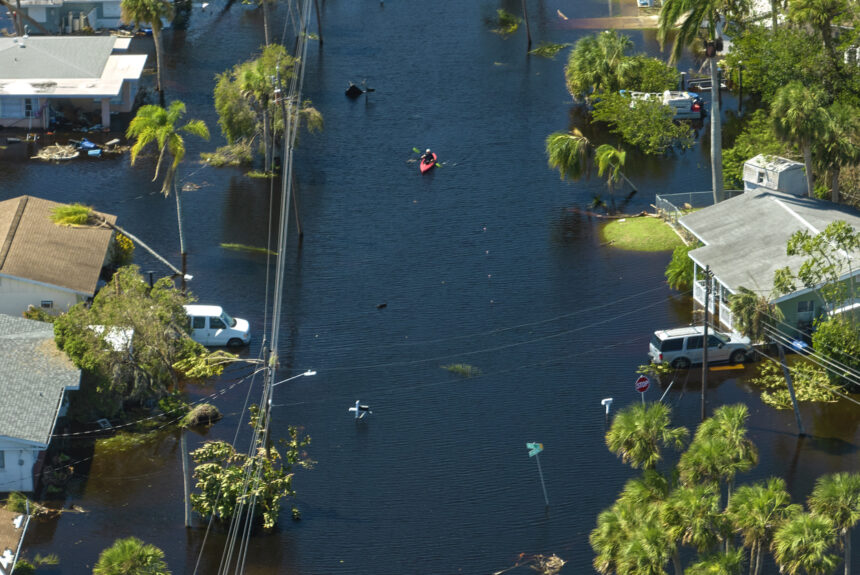Climate disasters impact thousands of Americans every year. The damage that wildfires and hurricanes bring can be exacerbated by inadequate emergency planning. First responder capabilities often break down in disasters as electrical grids and communications systems go down, creating chaos and hampering evacuation efforts. But climate tech startup Perimeter has rolled out a solution they think can help emergency responders overcome barriers to evacuations.
>>>READ: Say Goodbye to ‘Forever Chemicals’: Meet the Startup Tackling PFAS
Perimeter was co-founded by Bailey Farren and Noah Wu in the wake of the infamous Camp Fire that decimated California in 2018. Farren had lived through numerous wildfires and witnessed firsthand how quickly first responders lost access to the information they needed. “One aspect of climate resilience is being able to respond quickly to changing circumstances, and technology can help us further access that critical information when seconds really do count in our response,” she explained.
This firsthand knowledge is what drove the development of Perimeter. The company created a platform using sophisticated geographic information systems that can help create real-time, cohesive coordination across all emergency response departments:
The Perimeter Platform empowers emergency managers and responders to address the most important aspect of disaster response and recovery: life safety. We provide a shared, accessible platform for evacuation management, data sharing, and intradisciplinary collaboration. Using just one app, public safety personnel can share incident pre-plans with other teams, update information in real-time, and publish evacuation instructions to the public.
Perimeter’s platform works to eliminate bureaucratic challenges by getting all responders on one page. Agencies can plan before disasters, working to upload evacuation zones, traffic control points, and more. During a disaster, agencies can work off of a shared map that is updated in real-time. The platform even allows for evacuation details to be pushed out directly from the Perimeter app to all available public communication avenues, giving the public the most updated information possible.
And the technology is easily implemented. Perimeter can deploy the platform within a week. Users then have access to a customer service team for support and can scale the platform up as needed in dealing with different incidents.
>>>READ: Fixing Flood Insurance
Perimeter’s solution could be an incredible asset to protect human life in times of disaster and larger communications companies are taking notice. Perimeter was one of the 2023 recipients of Verizon’s Climate Resilience Prize. As a recipient, the company received $125,000 to put toward development and will receive consulting support.
“These award winners represent resiliency initiatives that leverage advanced technology to help enable economic, environmental, and social advancement,” said Verizon Manager of Social Innovation Stephanie Kinlock. “Their solutions will help protect the most vulnerable populations from the adverse effects of climate change.”
As climate change continues to make natural disasters worse, the threat to human life will grow. Innovative solutions like the platform developed by Perimeter are needed to prevent as much loss of life as possible.
Kelvey Vander Hart is a native Iowan, a member of the American Conservation Coalition, and a communications specialist at Reason Foundation.
The views and opinions expressed are those of the author’s and do not necessarily reflect the official policy or position of C3.
